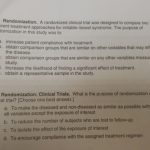Prostate cancer poses a significant health risk to Black men, a group that often faces unique challenges in detection, treatment, and survivorship. This article delves into the complexities of managing prostate cancer within this community, exploring the importance of early detection, the role of genetic predispositions, and the impact of community support. It also highlights recent advancements in research and care, and shares personal stories of resilience and strategies for improving quality of life. By spreading awareness and education, we aim to empower Black men to navigate their prostate cancer journey with knowledge and support.
Key Takeaways
- Early detection and screening are crucial for Black men, as they are at a higher risk for developing and dying from prostate cancer.
- Understanding genetic predispositions and risk factors can help tailor prevention and treatment strategies for Black men.
- Community and support networks, including online groups and family discussions, play a vital role in managing the disease.
- Advancements in research, such as the BACPAC Virtual Research Community, are driving progress towards health equity in prostate cancer care.
- Personal stories, like that of David McElhaney, underscore the importance of resilience and informed decision-making in survivorship.
Understanding Prostate Cancer in Black Men

The Significance of Early Detection and Screening
Early detection and screening are critical components in the management of prostate cancer, particularly for Black men who are disproportionately affected by this disease. Prostate cancer screenings are encouraged for Black men as early as 40, with new guidelines aiming to address health disparities. Regular screenings can lead to early diagnosis, when the cancer is most treatable, and can significantly improve survival rates.
The decision to start screening should be a collaborative one, involving a thorough discussion with a healthcare provider about the potential benefits and risks. Here are some key considerations:
- Understanding personal risk factors, including family history and genetic predispositions.
- Weighing the pros and cons of different screening methods, such as PSA tests and digital rectal exams.
- Discussing the implications of potential false positives or negatives.
It is essential for healthcare systems to implement programs that promote screening, especially in medically underserved communities. This proactive approach can bridge the gap in care and ensure that all men have the opportunity to benefit from early detection strategies.
Genetic Predispositions and Risk Factors
The landscape of prostate cancer risk is complex, with genetics playing a crucial role. Black men face a disproportionately higher risk of developing prostate cancer, with studies indicating a significant genetic component to this susceptibility. For instance, the frequency of germ-line mutations in genes like BRCA1 and BRCA2, known for their association with breast cancer, also contribute to familial prostate cancer risk.
Family history is a strong predictor of prostate cancer risk. Men with a family history of prostate cancer, particularly among first-degree relatives, are at an elevated risk. Recent research has also identified mutations in the MUTYH gene, traditionally linked to colorectal cancer, as a factor in the development of prostate cancer and other solid tumors.
Understanding one’s genetic makeup and family health history can be pivotal in early detection and personalized treatment strategies.
It is essential for Black men to be aware of these genetic predispositions and to discuss their family health history with healthcare providers to tailor screening and prevention strategies effectively.
Navigating Treatment Options: From Surgery to Active Surveillance
When it comes to managing prostate cancer, black men face a critical decision-making process that involves choosing between various treatment options. The choice between surgery, radiation, and active surveillance must be carefully considered, taking into account the stage of cancer, overall health, and personal preferences.
Active surveillance is increasingly recognized as a viable option for men with low-risk prostate cancer. This approach involves regular monitoring of the cancer without immediate treatment, allowing patients to avoid or delay the side effects associated with more aggressive treatments. A recent study evaluated the factors associated with the selection of active surveillance and found that its use is on the rise.
The decision to opt for active surveillance over other treatments is a complex one, influenced by a multitude of factors including patient education, healthcare provider recommendations, and the perceived risks and benefits.
Understanding the stages and treatments available is crucial for informed decision-making:
- Newly Diagnosed
- In Treatment
- Survivorship
Stages:
- Stage I & II (Localized)
- Stage III & IV (Advanced)
Treatments:
- Active Surveillance
- Localized Treatment Options
- Advanced Treatment Options
- Clinical Trials
- Side Effects
The Role of Community and Support Networks

Leveraging Online Groups and Virtual Communities
In the era of digital connectivity, online groups and virtual communities have become pivotal in supporting black men through their prostate cancer journey. These platforms offer a space for sharing experiences, accessing information, and receiving emotional support.
- The Virtual ZERO Prostate Cancer Education & Support Summit exemplifies the power of these communities in bringing together patients, survivors, and experts.
- Initiatives like the e-Advisory Council have adapted to the virtual space, ensuring continuous patient engagement during the COVID-19 pandemic.
- Online resources, such as those developed for veterans with cancer, address educational needs and improve patient well-being.
Embracing virtual communities can significantly enhance the management and understanding of prostate cancer among black men, fostering a sense of solidarity and empowerment.
The shift to virtual platforms has not only facilitated the continuity of support services but also allowed for the expansion of outreach, enabling more personalized and accessible care.
The Importance of Family Discussions on Health History
The journey of managing prostate cancer is deeply personal, yet it is also a path that intersects with family history and genetics. Open conversations about health history within families are crucial, as they can reveal inherited risks and patterns that may influence an individual’s approach to screening and prevention.
Understanding one’s family health history is particularly significant for Black men, where prostate cancer risk is notably higher. Heredity plays a role, as the American Cancer Society (ACS) reports that prostate cancer seems to run in some families, indicating a possible genetic factor.
It is essential for Black men to engage in family discussions about health history, as this can lead to earlier detection and more effective management of prostate cancer.
Here are some factors to consider when discussing family health history:
- The presence of prostate cancer or other cancers in the family.
- A long history of urinary issues.
- The age at which family members were diagnosed.
- Lifestyle and health-seeking behaviors of family members.
By sharing and analyzing this information, families can empower their members to take proactive steps towards health monitoring and potentially life-saving early intervention.
Accessing Resources: BACPAC’s Initiative for Black Men
The BACPAC Virtual Research Community (VRC) represents a significant stride towards addressing the unique challenges faced by Black men with prostate cancer. By joining the BACPAC VRC, individuals can actively participate in shaping the future of prostate cancer research and care. This initiative not only facilitates a platform for their voices to be heard but also provides access to a wealth of resources tailored to their needs.
The resources offered by BACPAC are diverse and aim to support Black men at every stage of their journey with prostate cancer:
- Patient Support Helpline
- Free Screening
- Educational Materials
- Online Peer Support
- Financial Resources
- MENtor Program
BACPAC’s partnership with ZERO Prostate Cancer underscores the commitment to advancing health equity through community-driven research and support. The collaboration ensures that the insights and experiences of Black men are integral to the development of effective strategies in prostate cancer management.
Advancements in Prostate Cancer Research and Care

Innovative Treatments Shaping the Future of Care
The landscape of prostate cancer treatment is undergoing a transformative shift with the introduction of innovative therapies and care models. The Collaborative Care Model, for instance, has been recognized for its flexible and personalized treatment approach, which is tailored to meet the specific needs of each patient. This model has garnered attention for its potential to enhance patient outcomes and streamline the care process.
Another significant advancement is the development of precision medicine programs, such as the one established by the Ochsner Health System in partnership with the Translational Genomics Research Institute. This initiative has expanded patient access to precision medicines and accelerated the development of new treatments.
The Enhancing Oncology Model is paving new pathways for patients to afford these critical services, ensuring that financial barriers do not impede access to life-saving treatments.
Furthermore, the implementation of clinical trials navigators has proven to be a game-changer, improving patient enrollment in clinical trials and thereby facilitating the advancement of cancer research. The following list highlights key innovations in prostate cancer care:
- Collaborative Care Model: Personalized, stepped care approach
- Precision Medicine Programs: Expanding access to targeted treatments
- Clinical Trials Navigation: Boosting patient participation in research
- Enhancing Oncology Model: Addressing financial barriers to care
These developments represent a beacon of hope for black men battling prostate cancer, promising a future where care is not only effective but also equitable and patient-centered.
The BACPAC Virtual Research Community: A Platform for Change
The BACPAC Virtual Research Community (VRC) represents a significant stride towards inclusivity and diversity in prostate cancer research. It’s a space where Black men affected by prostate cancer, including patients, survivors, and family members, can actively participate in shaping the future of health equity research.
By joining the BACPAC VRC, members gain access to a range of opportunities:
- Providing input on research priorities and studies
- Attending educational webinars
- Receiving regular updates on the latest findings
- Engaging in future research and advocacy initiatives
This initiative not only empowers individuals but also ensures that the unique experiences and needs of Black men are integrated into ongoing and future research efforts. The BACPAC VRC is more than a research platform; it’s a community-driven movement aimed at advancing prostate cancer research for Black men.
The BACPAC VRC is a testament to the power of community engagement in driving research that is both inclusive and impactful.
Health Equity in Prostate Cancer Research
The pursuit of health equity in prostate cancer research is a critical step towards ensuring that all men, regardless of race or socioeconomic status, have access to the best possible care. Prostate cancer incidence and mortality rates vary significantly across different populations, highlighting the need for targeted research and interventions.
Efforts to address these disparities are gaining momentum, with initiatives like the BACPAC Virtual Research Community (VRC) leading the charge. The BACPAC VRC is a platform where Black men affected by prostate cancer can engage in the research process, providing valuable insights and perspectives that are often underrepresented in clinical studies.
- ZERO Talks Prostate Cancer Disparities for Black Men with CNN
- BACPAC: Advancing Prostate Cancer Research for Black Men
The harsh reality is that prostate cancer cases are on the rise, with deaths increasing from 1 in 10 in 2013 to a staggering 4 in 10 in 2023. This alarming trend underscores the urgent need for greater awareness, research funding, and open conversations about men’s health.
Living with Prostate Cancer: Quality of Life and Survivorship

Managing Side Effects and Maintaining Wellness
For men navigating prostate cancer, managing side effects is crucial for maintaining quality of life. Side effects can include bladder and bowel problems, and difficulty with sexual functioning. Men with prostate cancer at low risk of spreading may undergo different treatments, each with its own set of potential side effects.
The broader benefits of effective side effect management relate to increased self-efficacy and well-being. Feeling enabled and empowered to take action on health concerns can have a positive impact on overall health outcomes.
Successful interventions that are tailored to individual needs can motivate men to continue with beneficial lifestyle adaptations. It’s important to maintain a sense of choice and control over the changes implemented. Men who are well-informed and proactive in managing their health often report better outcomes.
- Be well-informed about treatment options and potential side effects
- Maintain an active lifestyle and a good diet
- Stay positive and empowered in self-management
- Seek support for symptom improvement and therapeutic empowerment
Strategies for Long-Term Health and Well-being
For black men living with prostate cancer, long-term health and well-being are paramount. Maintaining an active lifestyle and a nutritious diet are foundational to managing health post-treatment. It’s crucial to recognize that the journey doesn’t end with treatment; it’s a continuous process of self-care and adaptation.
Incorporating self-management techniques can significantly alleviate symptoms and improve quality of life. Confidence in making lifestyle changes, often bolstered by engagement in self-help programs, is a key factor in sustaining long-term health. These changes are not just about managing prostate cancer but also about addressing the broader spectrum of health concerns that come with ageing.
The broader benefits of a proactive approach to health management extend beyond immediate treatment outcomes. They empower individuals to take control of their health and challenge the stigmas associated with ageing.
Here are some strategies that can support long-term health and well-being:
- Being well-informed about your health condition and treatment options
- Engaging in regular physical activity appropriate to your ability
- Adopting a diet rich in fruits, vegetables, and whole grains
- Participating in support groups or self-help programs
- Staying proactive in managing potential symptoms and side effects
Personal Stories of Resilience: David McElhaney’s Journey
David McElhaney’s experience with prostate cancer is a testament to the power of education and community support. In 2019, David was diagnosed with prostate cancer, and like many, he faced a daunting array of treatment options. His journey led him to UsToo and Zero Prostate Cancer, organizations that provided him with crucial information and support.
Through his involvement with these groups, David became an advocate for patient education, emphasizing the importance of understanding the disease and its potential treatments. His story is not just one of survival but of empowerment, as he now leads online groups to assist others in their battles against prostate cancer.
David’s story highlights the significance of community and knowledge in managing prostate cancer. It underscores the need for resources that can guide patients through their treatment choices and beyond.
David’s proactive approach to his diagnosis and his dedication to helping others serves as an inspiration. His efforts demonstrate how vital it is for patients to have access to accurate information and a supportive network during their journey with prostate cancer.
Spreading Awareness and Education

The Impact of Cultural Competence in Healthcare
Cultural competence in healthcare is a critical factor in improving patient outcomes and ensuring equitable care. Research shows that cultural congruence with the provider leads to improved patient-provider interaction, which in turn fosters better healthcare engagement and overall health. This is particularly significant in the context of prostate cancer management for Black men, where cultural barriers can impede access to care and affect the quality of the patient experience.
To address these challenges, healthcare providers must be equipped with the necessary skills to communicate effectively with patients from diverse backgrounds. Training in cultural competence includes understanding the cultural, social, and linguistic factors that influence health behaviors and perceptions. The ACCC’s online course is one example of an initiative designed to build awareness and improve health equity by enhancing communication and health literacy among cancer care team members.
The absence of an optimal cancer care coordination model highlights the need for strategies that strengthen care coordination through cultural competence.
Furthermore, the implementation of patient navigation programs has shown promise in bridging the gap in healthcare disparities. These programs are tailored to guide patients through the complex healthcare system, ensuring they receive timely diagnosis, treatment, and support. By incorporating culturally competent practices, healthcare providers can create a more inclusive environment that respects and responds to the unique needs of each patient.
Outreach Programs and the Role of Advocacy
Outreach programs play a pivotal role in prostate cancer awareness and management, particularly within the Black community. Advocacy efforts are essential in promoting access to information, screenings, and treatments that can save lives. These programs often serve as a bridge between medical professionals and the community, ensuring that vital health messages reach those who need them most.
- Advocate
- Access, Payment & Reimbursement Reform
- Cancer Moonshot
- Enhancing Oncology Model
A community-based approach to educating Black men about prostate cancer and increasing access to care can help close the health disparity gap.
The list above highlights some of the key advocacy initiatives that have been instrumental in advancing prostate cancer care and support. Each initiative plays a unique role in the overarching goal of improving patient outcomes and addressing the specific needs of Black men facing prostate cancer.
Utilizing Educational Content and Support Groups Effectively
The dissemination of educational content and the effective use of support groups can significantly enhance the journey of Black men managing prostate cancer. Increased knowledge and openness about the disease, along with the sharing of supportive information, are pivotal in fostering a proactive approach to health management. The ease of use and engaging nature of educational materials empower patients, promoting supported self-management and a sense of control over their health decisions.
Educational initiatives, such as the Iowa Oncology Society’s project, aim to spark conversations and raise awareness about crucial aspects like genetic testing and screening. Technology solutions, when successfully deployed, promise to improve the quality of patient care and enhance the patient experience.
The benefits of educational content and support groups extend beyond immediate knowledge gains, contributing to a community-wide uplift in health literacy and self-advocacy.
Support resources tailored for Black men with prostate cancer are readily available and can be accessed through various platforms:
- Patient Support Helpline
- Find a Support Group
- Free Screening
- Request Educational Materials
- Online Peer Support
- Financial Resources
- MENtor Program
- Regional Chapters
- Clinical Trial Finder
Additional resources specifically for Black men underscore the commitment to addressing the unique challenges they face in the context of prostate cancer care.
Conclusion
The journey of managing prostate cancer, particularly for Black men, is fraught with unique challenges and opportunities. As we have explored throughout this article, from the pioneering work of BACPAC to the personal stories of survivors like David McElhaney, it is clear that education, advocacy, and research are pivotal in advancing the care and outcomes for this group. The establishment of initiatives such as the BACPAC Virtual Research Community and the emphasis on regular health checks and proactive health management underscore the importance of community engagement and individual empowerment. However, the cycle of missed opportunities in primary care, such as the ‘PSA test loop’, highlights the need for a cultural shift towards comprehensive self-management guidance. As we strive to spread awareness and improve access to care, it is crucial that we continue to listen to the voices of Black men affected by prostate cancer and integrate their experiences into a more equitable healthcare framework.
Frequently Asked Questions
What is the significance of early detection and screening for prostate cancer in Black men?
Early detection and screening for prostate cancer are crucial for Black men because they are at a higher risk of developing the disease at a younger age and with more aggressive tumors. Early diagnosis through screenings such as PSA tests can lead to more effective treatment and better survival rates.
How do genetic predispositions affect the risk of prostate cancer in Black men?
Genetic predispositions play a significant role in the risk of prostate cancer for Black men. Family history, such as having a father or brother diagnosed with prostate cancer, increases the risk. Research also indicates that there may be specific genetic markers that are more prevalent in Black men, contributing to the higher incidence and mortality rates associated with the disease.
What treatment options are available for Black men diagnosed with prostate cancer?
Treatment options for Black men with prostate cancer include surgery, radiation therapy, hormone therapy, chemotherapy, and active surveillance. The choice of treatment depends on various factors including the stage and aggressiveness of the cancer, the patient’s overall health, and personal preferences.
How can Black men access resources and support for prostate cancer management?
Black men can access resources and support through initiatives like BACPAC’s Virtual Research Community (VRC), online groups, and advocacy organizations such as UsToo and ZERO Prostate Cancer. These platforms offer educational content, support groups, and opportunities to participate in research aimed at improving health equity.
What are the latest advancements in prostate cancer research that could benefit Black men?
Recent advancements in prostate cancer research include new diagnostic tools, targeted therapies, immunotherapies, and precision medicine approaches. Programs like BACPAC’s VRC are also focusing on the unique experiences and needs of Black men to ensure that research and treatments are inclusive and effective for this high-risk group.
How can family discussions about health history improve prostate cancer outcomes for Black men?
Family discussions about health history can raise awareness of the genetic risks associated with prostate cancer. Encouraging conversations about family members who have been diagnosed can prompt early screenings and proactive health measures, leading to earlier detection and better outcomes for Black men.



